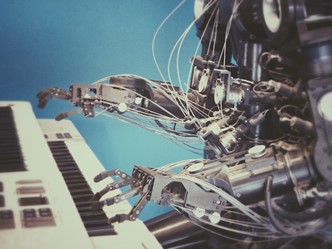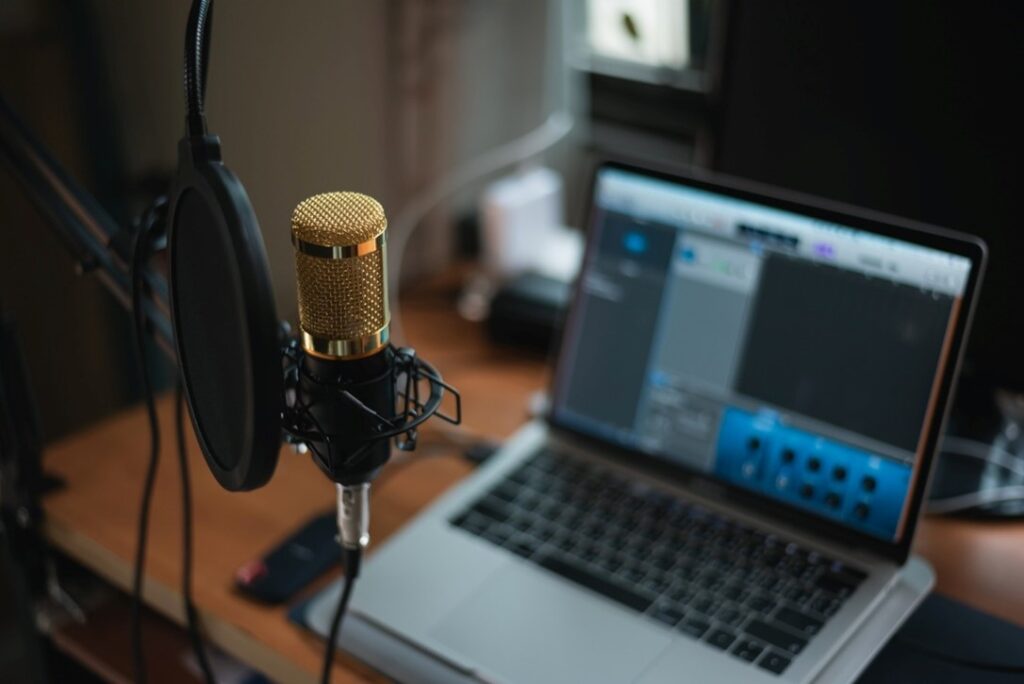
Artificial Intelligence has sparked numerous debates in recent years. After all, now that machine-learning lends itself to AI which can create it’s own content, and at a markedly higher rate than human beings, where does that leave us? More specifically, we know that AI has made its way across various markets, businesses, and services, but will AI pose a real threat to songwriting, changing how we hear, read and perform music?
Gerard Zappa Wooster confirms that artificial intelligence is in fact, changing the way that human beings write songs, but it is not capable of making songwriting obsolete (yet). In fact, music has already been produced by AI generated content as far back in history as the 1950s. Therefore, like all innovations, the music industry will more likely adapt to artificial intelligence, not be destroyed by it.
Potential Threats
When it comes to AI, we have plenty of science fiction works telling us why we should be worried. But should the question of human songwriting and its reception be added to that list of worries? Let’s find out.
Will AI Make Songwriting Obsolete
First off, while AI can write its own songs, it does not currently have the capability to make successful emotional connection without any human input. Even modern examples of AI-created songs like “Heart on My Sleeve” have been edited, reimagined, and otherwise tampered with by human beings.
This is because without a human touch, music created by a machine cannot achieve the one thing all music gets it’s roots in: relatability.
Genres of Music
Within the vibrant music community, the topic of genres sparks endless discussions among creators and listeners alike. It’s undeniable that AI generated music possesses a distinctiveness that sets it apart from human-made compositions. As a result, a new genre exclusive to AI music is likely to emerge, further enriching the landscape.
This evolution increases the exciting prospect of AI enhancing existing genres while carving out its own distinctive niche. One thing is certain – AI won’t obliterate entire genres but instead contribute to a dynamic and diverse musical ecosystem. The harmonious coexistence of human creativity and AI innovation will redefine the future of music.

Will Human-Written Music Be Better Received
Many music fans, when asked what they love about a song, will explain that they feel a connection to the lyrics or the melody. Perhaps it reminds them of a memory, helps them grieve, or feel connected to the artist, surroundings, or events.
In the realm of music, the absence of human emotion in AI written songs becomes strikingly evident. Although artificial intelligence may produce beautifully composed melodies, it lacks the depth of emotion that stems from lived experiences.
Consequently, when an AI composed song touches on themes of sorrow or joy, human listeners may find it challenging to form a genuine connection. This distinction amplifies the uniqueness of human-written music, as it resonates with audiences on a profound, relatable level. The contrast between artificial intelligence and human creativity serves to elevate the artistry of human composers, making their work shine even more brightly in a world increasingly touched by technology.
In Conclusion
So, where do we leave the discussion of AI and it’s potential, real threat to songwriting? To simply summarize all we’ve considered, AI is simply one more innovation created by human beings which will, indeed shake up the industry—but it will not destroy it.
Why? Human beings create music in order to connect to one another and communicate real emotion or experiences; artificial intelligence will struggle to recreate that. Therefore, all the music industry needs to do is the same thing it has always done; adapt and evolve!



